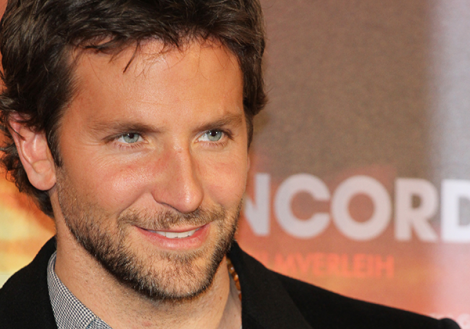Bradley Cooper is “the sexiest man on the planet,” according to People magazine. He is handsome, he is hip, and he is bankable. More than Tom Cruise (with his Scientology and his awkward interviews), Bradley Cooper is hot, and that translates into money. Put Bradley Cooper in a movie, and you get ticket sales. Put him in a print ad, and you have immediate recognition. On Facebook, Cooper has 3.1 million “likes” and more than 30,000 people talking about him. But can he sell a product? Not necessarily.
I call this paradox the “Bradley Cooper Syndrome.” In 2014, celebrities will benefit handsomely from multimillion-dollar endorsements, though the marketplace is fickle. Branding is about repetitive exposures that shape perception, and the Bradley Coopers of the world don’t have a problem supporting their personal brands. But in direct response, is the use of a celebrity endorsement more successful than straight product branding?
Celebrity branding in DR has a varied history. Think of the top infomercials and short-form spots. Which celebrities come to mind? Among the top choices are Cindy Crawford, Valerie Bertinelli, Jessica Simpson, and George Foreman. Yet Billy Mays, Anthony Sullivan, and Ron Popeil weren’t celebrities before they were pitchmen. Successful media created their popularity and together, they created the success of the products they represented. Does transactional brand-building create a stronger opportunity for success with a celebrity endorsement?
The key to the effective use of a celebrity in branding your product is to identify the needs of the target market. The consumer must understand what validity and credibility the celebrity brings to your brand. Use demographic and psychographic analytics to set the guidelines for a successful celebrity branding campaign. By identifying a brand’s unique selling proposition (USP), you’ll know if your celebrity will help or hinder a campaign. If the person you are considering is a true fit, Mr. or Ms. Celebrity should be uniquely positioned to bring credibility to the product.
The parameters for a successful celebrity endorsement are:
- His or her endorsement creates an arresting visual and verbal association with your product.
- The celebrity identifies with the brand, and his or her look and story appeals to the consumer.
- The celebrity communicates credibility.
- The celebrity’s tone is strong and aspirational.
- The “voice” of the celebrity brings the viewer to always think of your product/brand and answers the following questions: What does the product do for me? How does it work, and why should I believe that this celebrity believes it works? Will my family and friends think of this product as credible because of the celebrity?
- The endorsement creates an effective campaign that can be cleared on a majority of networks and dayparts as a result of the endorsement.
- The endorsement creates B-roll assets that can be used effectively in digital and social media channels.
- The celebrity communicates the offer clearly and persuades consumers to purchase.
Sounds easy, right? Yet celebrity endorsement is an expensive proposition—perhaps the most expensive of all creative assets. Spending hundreds of thousands of dollars on an untested commodity is enough to drown a marketing effort. Therefore, I offer the following questions to avoid failure and hopefully encourage success:
- How long can you lock your celebrity into a contract?
- What exclusivity parameters are you able to acquire?
- Can you cross-pollinate the creative assets of the celebrity across television, print, and digital channels?
- How much money will the celebrity be paid, and what is your expected ROI?
- Is there an opportunity for repeatable success in future SKUs?
- Is the celebrity willing to support public relations efforts for the brand?
Is the celebrity currently using the brand, or does he/she have a problem your brand can solve? (This is crucial.)
In a multichannel marketing environment, the celebrity should also be able to contribute to Web sales. We know that celebrities can drive viewers to a website, but there is no guarantee that the consumer will purchase. The instantaneous purchase power of DRTV has changed, and the influence of a celebrity on sales is not guaranteed. Unless, of course, Bradley Cooper happens to use your product, endorses it, loves it, and gets his 3.1 million friends to like it, too.

